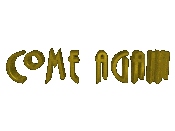
It is time to play a Wild Card! Every now and then, a book that I have chosen to read is going to pop up as a FIRST Wild Card Tour. Get dealt into the game! (Just click the button!) Wild Card Tours feature an author and his/her book's FIRST chapter!
You never know when I might play a wild card on you!
Today's Wild Card author is:
and the book:
David C. Cook; 1st edition (September 2008)
ABOUT THE AUTHOR:
 Ginger Garrett is the critically acclaimed author of Chosen: The Lost Diaries of Queen Esther, which was recognized as one of the top five novels of 2006 by the ECPA, and Dark Hour. An expert in ancient women's history, Ginger creates novels and nonfiction resources that explore the lives of historical women.
Ginger Garrett is the critically acclaimed author of Chosen: The Lost Diaries of Queen Esther, which was recognized as one of the top five novels of 2006 by the ECPA, and Dark Hour. An expert in ancient women's history, Ginger creates novels and nonfiction resources that explore the lives of historical women.On September 11, Ginger's non-fiction book, Beauty Secrets of the Bible, based on the historical research that began in her work on Chosen was released. The book explores the connections between beauty and spirituality, offering women both historical insights and scientific proofs that reveal powerful, natural beauty secrets.
A frequent radio guest on stations across the country, including NPR and Billy Graham's The Hour of Decision, Ginger is also a popular television guest. Her appearances include Harvest Television, Friends & Neighbors, and Babbie's House. Ginger frequently serves as a co-host on the inspirational cable program Deeper Living.
In 2007, Ginger was nominated for the Georgia Author of the Year Award for her novel Dark Hour. When she's not writing, you may spy Ginger hunting for vintage jewelry at thrift stores, running (slowly) in 5k and 10k races, or just trying to chase down one of her errant sheepdogs. A native Texan, she now resides in Georgia with her husband and three children.
Visit the author's website.
My review will come as I am reading this book now.
AND NOW...THE FIRST CHAPTER:

I admit I once lived by rumors of you;
now I have it all firsthand…
I’ll never again live
on crusts of hearsay, crumbs of rumor.
Job 42, The Message
CHAPTER ONE
Tomorrow, someone else will die in my bed.
Someone died in it last month, which is how it came to be called mine.
The infernal clock moved confidently towards 1 a.m., and I turned my head to look at the window. The window of this room is a miserly gesture from the contractors, producing more fog than visage. I watched the gold orbs—the lamps on the lawn of the hospice sputtering off and on in the darkness—that dotted the fogged glass.
That was the last moment I lived as an iver, one whose eyes are veiled.
One orb did not sputter but moved, gliding between the others, moving closer to the window, growing larger and brighter until the light consumed the entire view. I winced from the searing glare and tried to shield my eyes, but the IV line pulled taut. Wrestling with the line to get some slack, I saw the next movement out of the corner of my eye. I bit down hard on my tongue, my body jerking in reflex, and felt the warm blood run back to my throat.
Outside, a hand wiped the fog away from the glass, and I watched the water beads running down the inside of my window. There was no searing light, only this mammoth hand with deep creases in the palms wiping down the window until we both could see each other. A man’s face was against the glass, but no breath fogged his vision. He was a giant, grim man, with an earring in one ear and dark glasses, and he was staring in at me. Even through the morphine, fear snaked along my arms, biting into my stomach, constricting around my throat. I tried to scream, but I could only gulp air and heave little gasps. His expression did not change as he lifted his hands, curling them into fists. I flinched at the last moment, thinking him to be Death, expecting to receive the blow and die.
Then I grew suddenly warm, like the feeling you get stepping out from an old, dark city library into the busy street and a warm spring sun.
Death didn’t even hurt, I rejoiced. I could slip into it like I slipped onto that street, eyes down, my thoughts my own, and simply turn a corner and be gone. I lifted my fingers to beckon him. Yes, I thought. I saw the beautiful Rolex on my birdlike wrist, and saw that it had stopped. It is time.
When I looked back up, he was beside me, staring down, not speaking. I wasn’t dead. His frame was monstrously large, hitting what must be seven feet tall, with a width of muscle strapped across it that was inhuman. As he watched me, his chest didn’t move, and his nostrils didn’t flare, but heat and warm breath radiated from him. When he laid his hands across my eyes, I was too scared to move my head away. His palms covered most of my face, and a sharp buzzing drilled into every pore. He began to move his hands elsewhere, touching and bringing to life every splintered inch of my body. When he got to the cancer, with one swollen lymph node visible even through my stained blue gown, he rested his hands there until the swelling sighed and he swept it away with his hand.
“Wait!” I screamed.
I didn’t want to live. I hadn’t known that was going to be an option. I deserved to be damned. To return to my life was too much to ask of me. I was finished.
“You’ll still be dead by morning,” he reassured me. His voice was deep and clean, no tell-tale dialect or inflection. Taking off his glasses, I saw he had enormous gold eyes, with a black pinhole in the center that stayed round and cold. There was no white in them at all, and they were rimmed all the way around the outside with black. I stared at them, trying to remember where I had seen eyes like this. It was years ago, this much I remembered.
I had to shake myself back to the moment. Clearly, morphine was not setting well with me tonight. I wanted to die in peace. That’s what I paid these extravagant sums for. My hand moved to the nurses’ call button. Mariskka was just down the hall, waiting for her moment to steal my watch. I knew she’d come running.
He grabbed my hand and the shock seared like a hot iron. Crying out, I shook him off and clutched my hand between my breasts, doing my best to sit up with my atrophied stomach muscles and tangled IV.
He leaned in. “I have something for you.”
“What?”
He leaned in closer. “A second chance.”
Second chances were not my forte. As the most celebrated editor in New York City, I had made a killing. I loved the words that trembling writers slid across my desk, those little black flecks that could destroy their life’s dream or launch a career. I bled red ink over every page, slashing words, cutting lines. No one understood how beautiful they were to me, why I tormented the best writers, always pushing them to bring me more. The crueler I was to the best of them, the more they loved me, like flagellants worshipping me as the master of their order. Only at the end, lying here facing my own death, did I understand why. They embraced the pain, thinking it birthed something greater than themselves. I saw how pitifully wrong they were. There was only pain. This is why I was ready to die. When you finish the last chapter and close the book, there is nothing but pain. It would have been better never to have written. Words betrayed me. And for that, I betrayed the best writer of them all.
“Burn any manuscripts that arrive for me,” I had ordered my nurse, Marisska. “Tell them I’m already dead. Tell them anything.”
“I’ll let you write the truth,” the man whispered.
“I’m not a writer,” I replied. My fear tumbled down into the dark place of my secrets.
“No, you’re not,” he answered. “But you’ve coveted those bestsellers, didn’t you? You knew you could do better. This is your second chance.”
It caught my attention. “How?”
“I will dictate my story to you,” he said. “Then you’ll die.”
Taking dictation? My mouth fell open. “I’m in hell, aren’t I?”
He tilted his head. “Not yet.”
I pushed away from the pillows and grabbed him. Blisters sprang up on my palms and in between my fingers, but I gritted my teeth and spat out my words. “Who are you?”
“The first writer, the Scribe. My books lie open before the Throne and someday will be the only witness of your people and their time in this world. The stories are forgotten here and the Day draws close. I will tell you one of my stories. You will record it.”
“Why me?”
“I like your work.”
I started laughing, the first time I had laughed since I had been brought to this wing of the hospice, where the dying are readied for death, their papers ordered, and discreet pamphlets on “end of life options” left by quiet-soled salesmen. I laughed until I was winded. He rested his hand on my chest, and I caught my breath as he spoke.
“Let’s go find Marisska.”
















































No comments:
Post a Comment